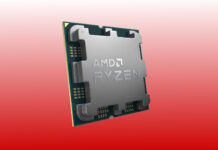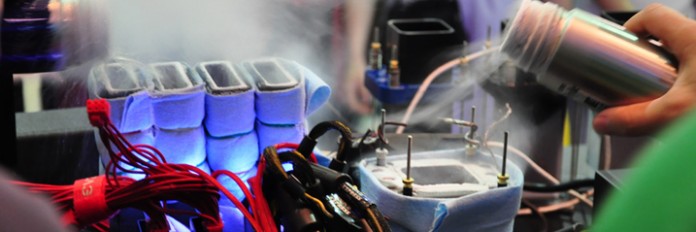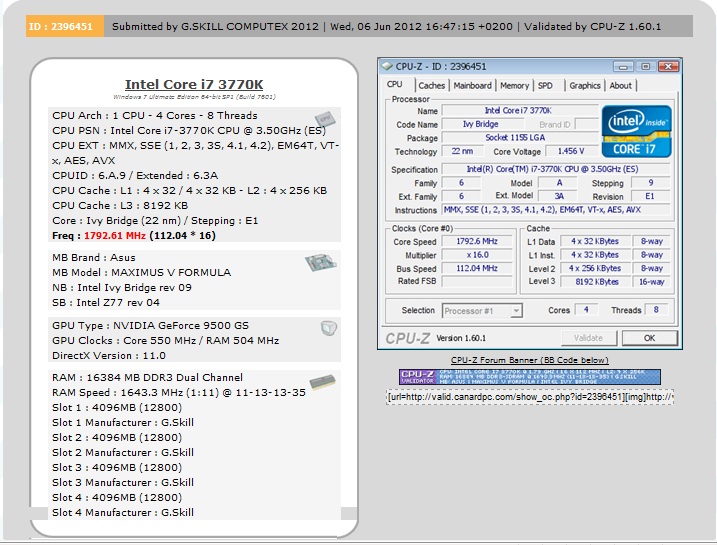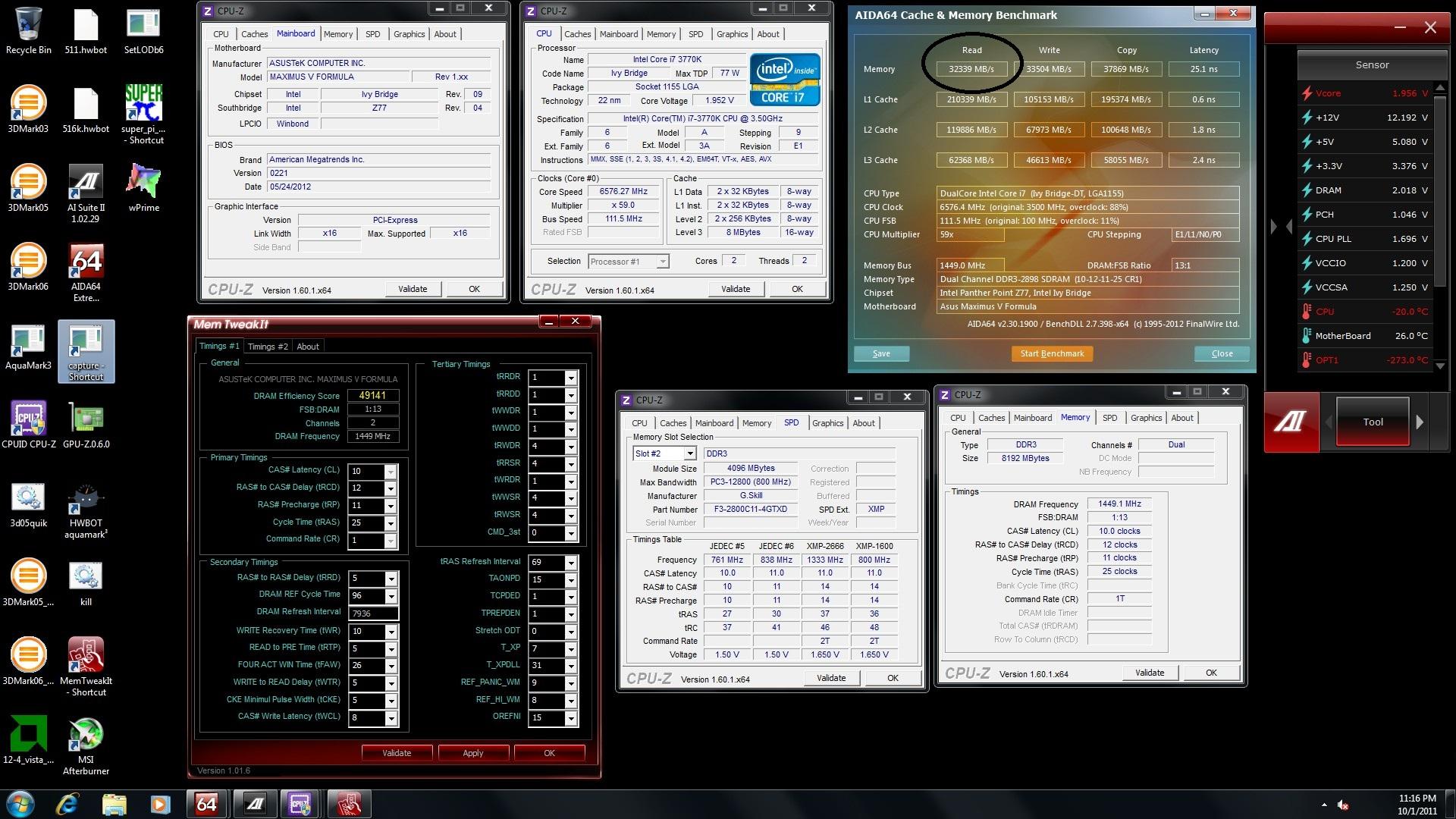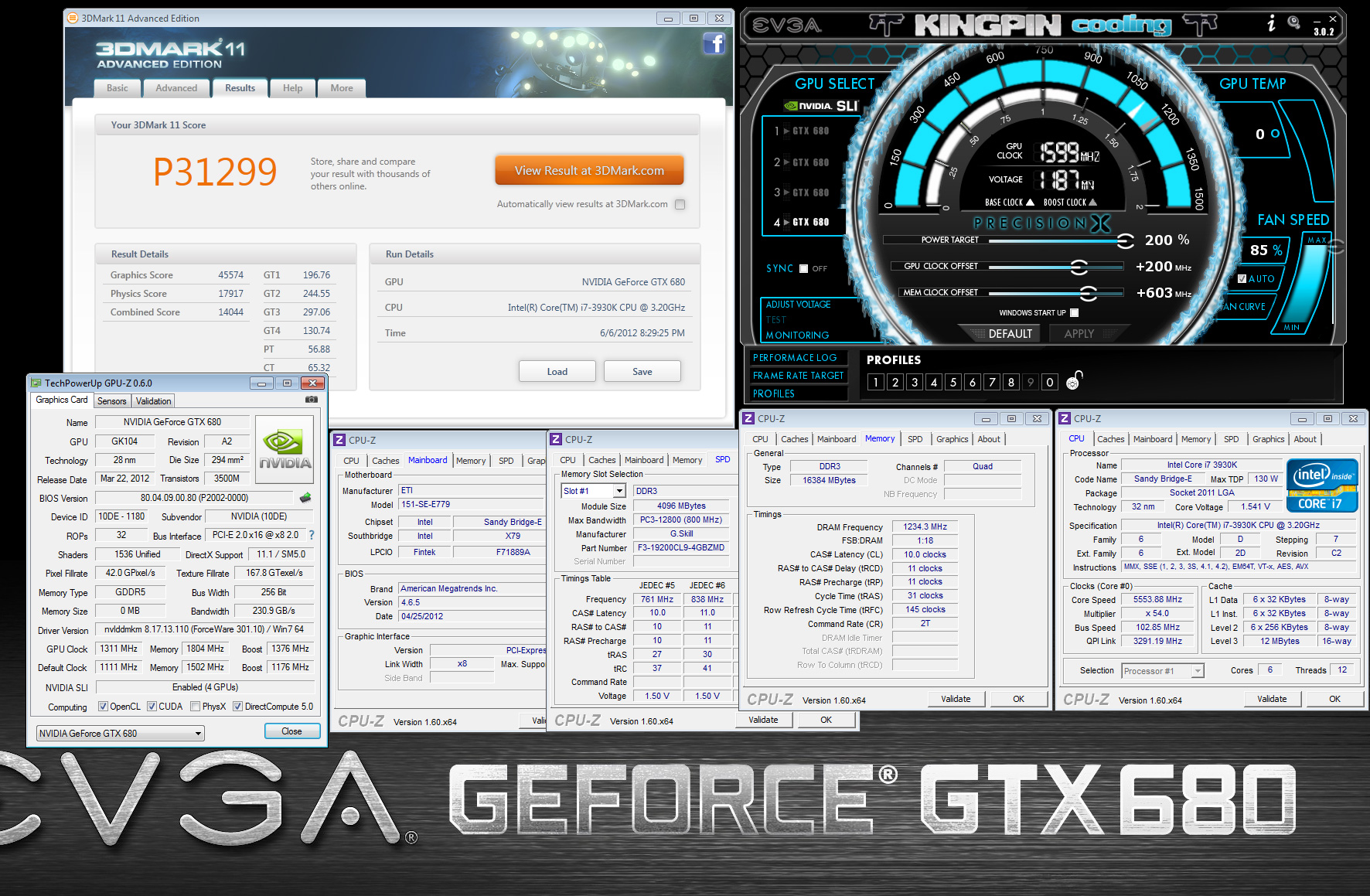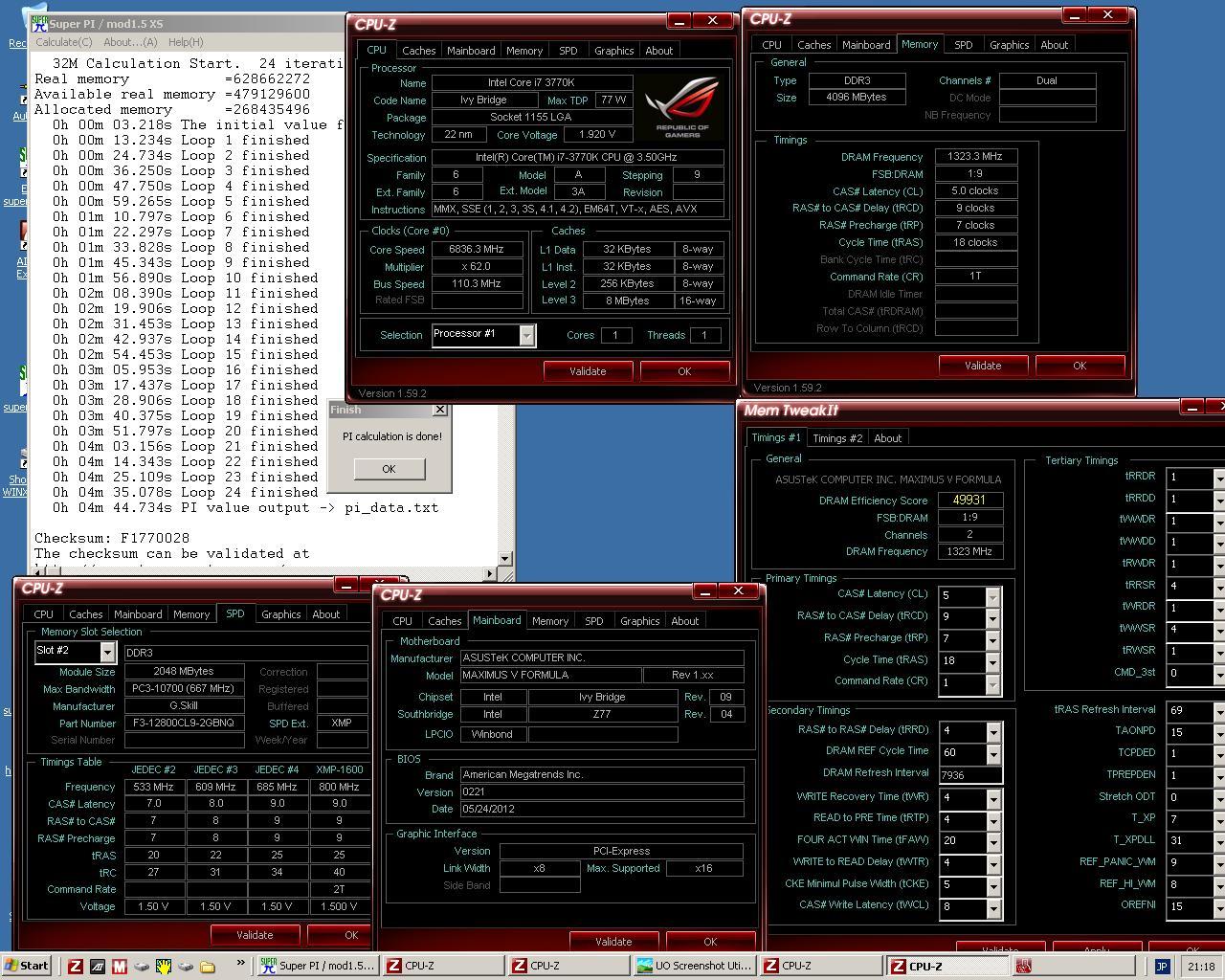G.Skill had a successful week at Computex in Taiwan where the memory maker broke no less than five world records related to memory performance. Among others, G.Skill reached the world’s highest DDR3 memory frequency at staggering 3842 MHz, with AMD’s Llano platform.
G.Skill supplied a handful set of talented overclockers with different DDR3 memory modules and the result was five world records where the mighty record in maximal DDR3 frequency was achieved with a single 4GB module from the G.Skill TridentX series on a Gigabyte GA-A75-UD4H motherboard with an AMD A8-3850 processor at 2 GHz. The record was set by overclocker John Lam during an event at case maker Antec.
G.Skill also noted the world’s highest DDR3 frequency with 16GB memory. With four G.Skill TridentX 2800 MHz modules on an ASUS Maximus V Formula motherboard was pushed to 3286MHz by overclocker Hiwa Pouri. The processor in in this system was an Intel Core i7-3770K operating at neat 1,8 GHz.
G.Skill TridentX was also used to reach the highest recorded memory bandwidth in AIDA64. A read speed of 32339 MB/s was achieved using an ASUS Maximus V Formula motherboard and an Intel Core i7 3770K. The memory frequency was 2900 MHz with CL10 1T latencies.
Overclockers Kingpin and Duck-san then set some more notable benchmark records where 3DMark 11 recorded a score of 31,299 points using G.Skill RipjawsZ modules at 2468 MHz with CL10 latencies. Other components were an EVGA X79 EVGA Classified motherboard and no less than four EVGA Classified GTX680 graphics card and an Intel 3930K Core i7 processor clocked at 5.55 GHz.
Last but not least overclockers Fredyama-san and Shamino pushed a Core i7-3770K processor to 6.83 GHz and using two G.Skill modules working at 2646 MHz with CL5-9-7-18 1T latencies they set a new SuperP1 32M record at 4 minutes and 44.734 seconds. The motherboard was an ASUS Maximus V Formula.
For comparison we can say that modern processor platforms often use DDR3 memory at 1333 MHz or 1600 MHz, but the latest platforms from AMD and Intel support considerably higher frequencies, especially when overclocking.
Source: G.Skill


